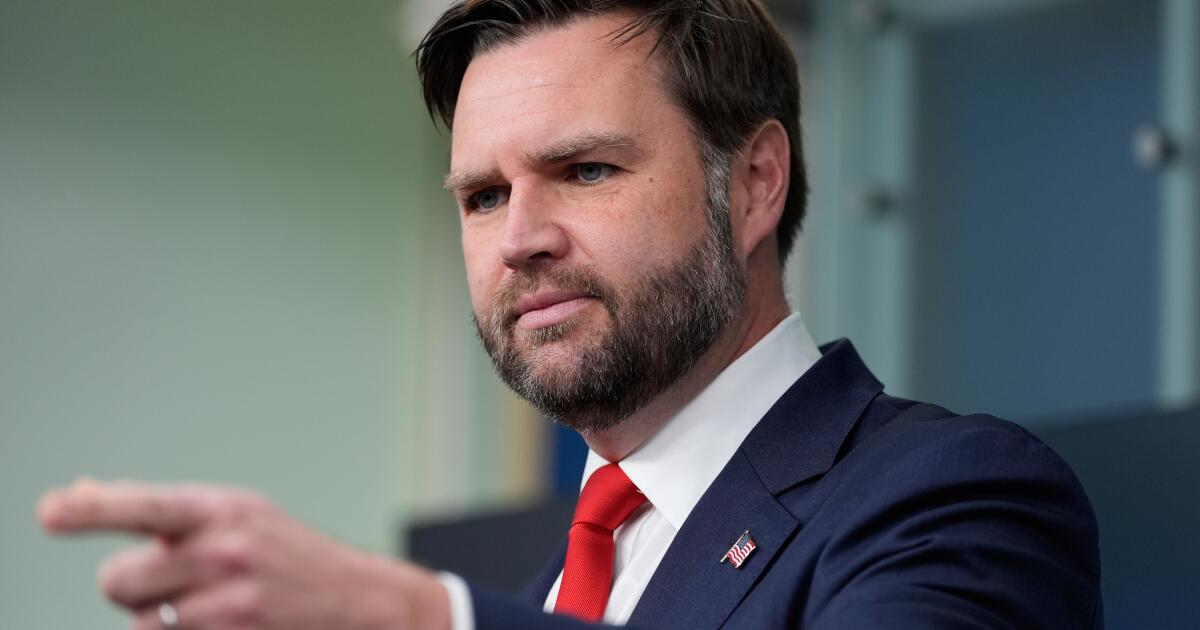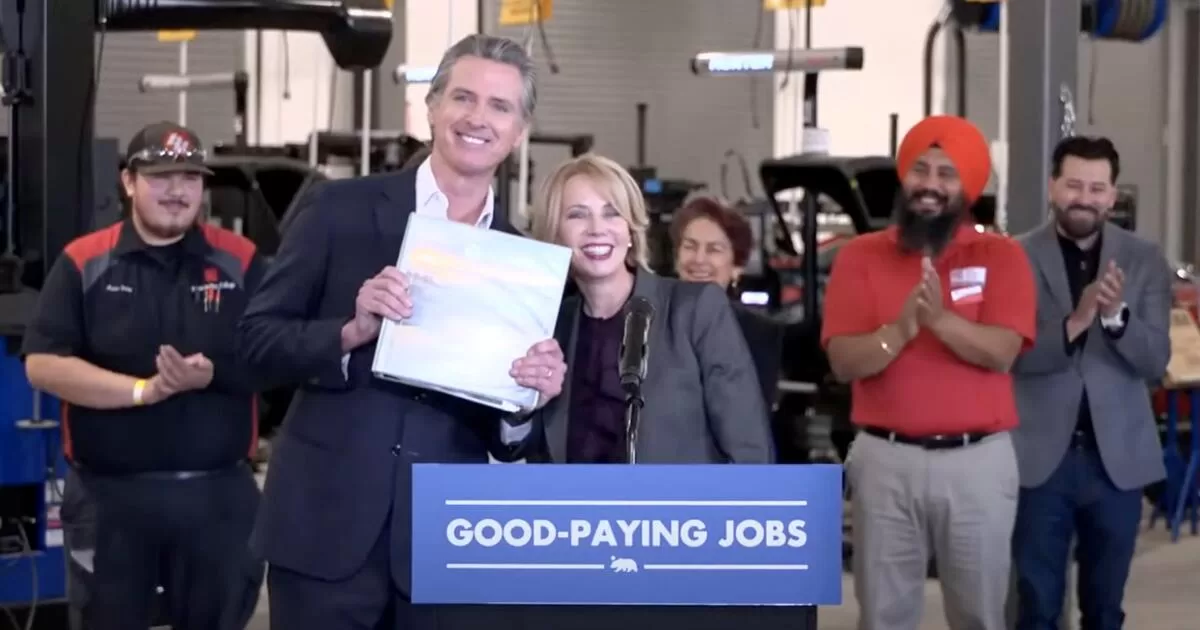Vance warns ‘deeper’ cuts ahead for federal workers as shutdown enters 12th day
Vice President JD Vance said Sunday there will be deeper cuts to the federal workforce the longer the government shutdown goes on, adding to the uncertainty facing hundreds of thousands who are already furloughed without pay amid the stalemate in Congress.
Vance warned that as the federal shutdown entered its 12th day, the new cuts would be “painful,” even as he said the Trump administration worked to ensure that the military is paid this week and some services would be preserved for low-income Americans, including food assistance.
Still, hundreds of thousands of government workers have been furloughed in recent days and, in a court filing Friday, the Office of Management and Budget said well over 4,000 federal employees would soon be fired in conjunction with the shutdown.
“The longer this goes on, the deeper the cuts are going to be,” Vance said on Fox News’ “Sunday Morning Futures.” “To be clear, some of these cuts are going to be painful. This is not a situation that we relish. This is not something that we’re looking forward to, but the Democrats have dealt us a pretty difficult set of cards.”
Labor unions have already filed a lawsuit to stop the aggressive move by President Trump’s budget office, which goes far beyond what usually happens in a government shutdown, further inflaming tensions between the Republicans who control Congress and the Democratic minority.
The shutdown began Oct. 1 after Democrats rejected a short-term funding fix and demanded that the bill include an extension of federal subsidies for health insurance under the Affordable Care Act. The expiration of those subsidies at the end of the year will result in monthly cost increases for millions.
Trump and Republican leaders have said they are open to negotiations on the health subsidies, but insist the government must reopen first.
For now, negotiations are virtually nonexistent. Dug in as ever, House leaders from both parties pointed fingers at each other in rival Sunday appearances on “Fox News Sunday.”
“We have repeatedly made clear that we will sit down with anyone, anytime, anyplace,” said House Democratic leader Hakeem Jeffries of New York. “Republicans control the House, the Senate and the presidency. It’s unfortunate they’ve taken a my-way-or-the-highway approach.”
House Speaker Mike Johnson (R-La.) blamed Democrats and said they “seem not to care” about the pain the shutdown is inflicting.
“They’re trying their best to distract the American people from the simple fact that they’ve chosen a partisan fight so that they can prove to their Marxist rising base in the Democratic Party that they’re willing to fight Trump and Republicans,” he said.
Progressive activists, meanwhile, expressed new support for the Democratic Party’s position in the shutdown fight.
Ezra Levin, co-founder of the leading progressive protest group Indivisible, said he is “feeling good about the strength of Dem position.” He pointed to fractures in the GOP, noting that Georgia Rep. Marjorie Taylor Greene publicly warned last week that healthcare insurance premiums would skyrocket for average Americans — including her own adult children — if nothing is done.
“Trump and GOP are rightfully taking the blame for the shutdown and for looming premium increases,” Levin said. “Their chickens are coming home to roost.”
And yet the Republican administration and its congressional allies are showing no signs of compromise on Democratic demands or backing away from threats to use the opportunity to pursue deeper cuts to the federal workforce.
Thousands of employees at the departments of Education, Treasury, Homeland Security and Health and Human Services as well as the Environmental Protection Agency are set to receive layoff notices, according to spokespeople for the agencies and union representatives for federal workers.
“You hear a lot of Senate Democrats say, well, how can Donald Trump possibly lay off all of these federal workers?” Vance said. “Well, the Democrats have given us a choice between giving low-income women their food benefits and paying our troops on the one hand, and, on the other hand, paying federal bureaucrats.”
Democrats say the firings are illegal and unnecessary.
“They do not have to do this,” said Democratic Sen. Mark Kelly of Arizona on CNN’s “State of the Union.” “They do not have to punish people that shouldn’t find themselves in this position.”
Peoples writes for the Associated Press.

